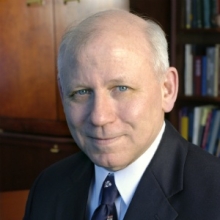Penn Selected for Undergraduate STEM Education Initiative

The University of Pennsylvania has been named a project site for the Undergraduate STEM Education Initiative. Penn Arts and Sciences will play a major role in the multiyear, multimillion dollar project, which aims to improve the quality of education in science, technology, engineering, and mathematics.
Developed by the Association of American Universities in 2011, the project called for proposals from member universities, looking for those best able to demonstrate the effectiveness of evidence-based teaching practices in these disciplines. Leveraging its Open Learning Initiative and its Center for Teaching and Learning, Penn was named one of these sites and will implement its proposal during the next three years.
Robert A. Fox Leadership Professor and Dean of the College Dennis DeTurck, and Beth Winkelstein, associate dean for undergraduate education in the School of Engineering and Applied Science, will lead the project at Penn.
At the project’s core is the proliferation of massive open online courses (MOOCs). Notable among these classes is “Calculus: Single Variable,” taught by Andrea Mitchell University Professor Robert Ghrist. The series of animated lectures has attracted tens of thousands of students and been recommended for credit by the American Council on Education.
Using Ghrist’s lecture materials as a model, Penn will implement a series of “gateway” courses that include varied levels of active learning that will enable undergraduates to directly engage in the STEM disciplines and better prepare them for advanced study. The new “blended” courses—a mix of in-person and online classroom formats—will be taught in mathematics, physics, chemistry, and bioengineering.
Penn will also develop support systems for this project in a range of areas, including expertise in creating new media course materials, finding appropriate physical facilities for blended classes and, critically, implementing assessment metrics that can be analyzed and distributed beyond the University.
To this end, Penn will also participate in the AAU STEM network, which will enable faculty and administrators at AAU institutions to share best practices and promote sustainable change in undergraduate STEM teaching and learning.
The AAU initiative received a three-year, $4.7 million grant from The Leona M. and Harry B. Helmsley Charitable Trust in October, which enabled the association to develop the initiative framework and provide $500,000 to each of eight project sites.
Read the full story here.





